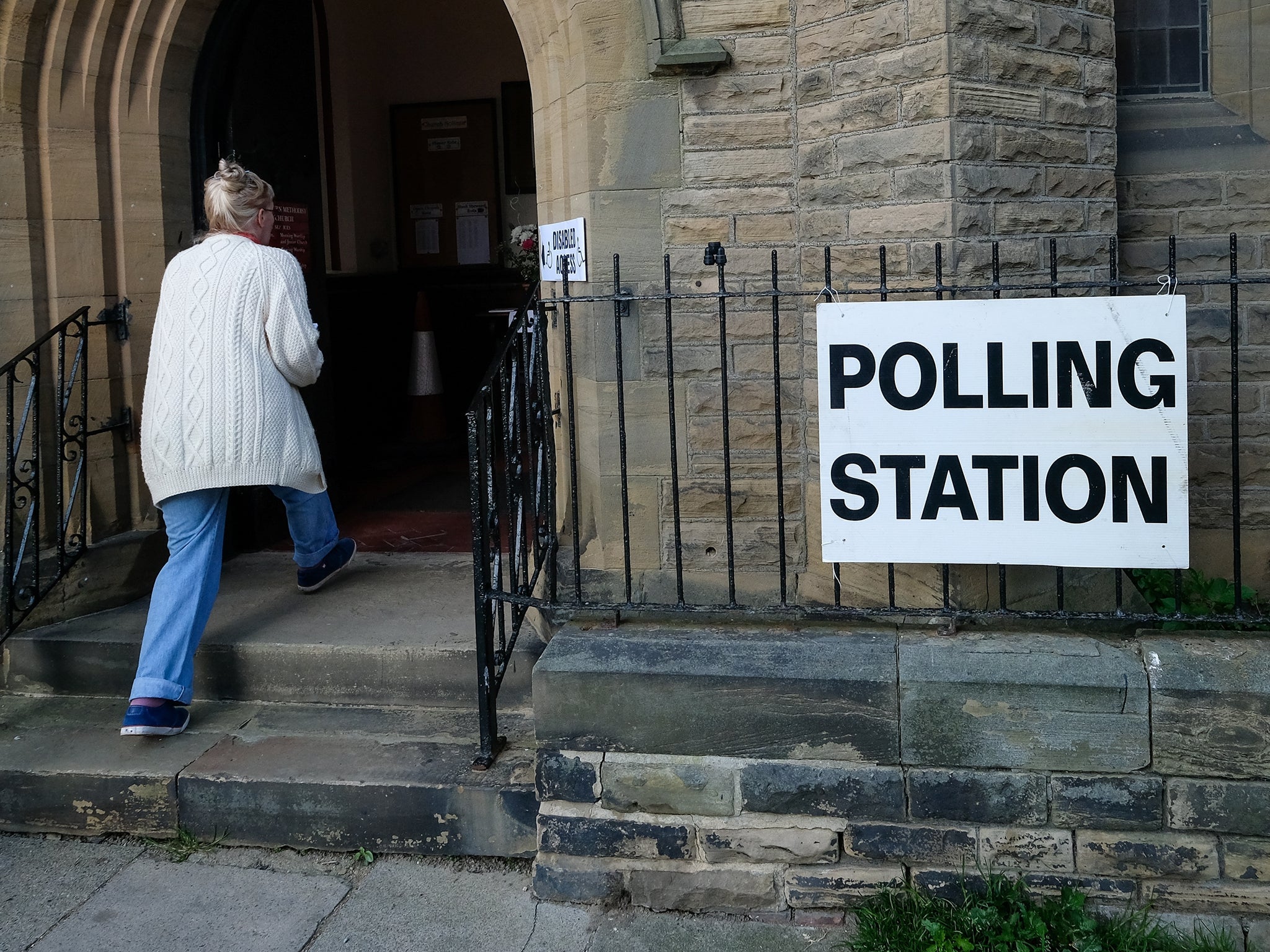General election: Almost 2.5 million private renters could miss out on chance to vote
Frequent moves mean private renters’ voices are less likely to be heard by politicians, campaigners say

Your support helps us to tell the story
From reproductive rights to climate change to Big Tech, The Independent is on the ground when the story is developing. Whether it's investigating the financials of Elon Musk's pro-Trump PAC or producing our latest documentary, 'The A Word', which shines a light on the American women fighting for reproductive rights, we know how important it is to parse out the facts from the messaging.
At such a critical moment in US history, we need reporters on the ground. Your donation allows us to keep sending journalists to speak to both sides of the story.
The Independent is trusted by Americans across the entire political spectrum. And unlike many other quality news outlets, we choose not to lock Americans out of our reporting and analysis with paywalls. We believe quality journalism should be available to everyone, paid for by those who can afford it.
Your support makes all the difference.Some 2.4 million people living in private rented homes could miss out on their vote in the 12 December general election, campaigners have warned.
In 96 parliamentary constituencies across England, the number of unregistered private renters is believed to be higher than the majority of the victorious candidate in the 2017 election, according to calculations by the campaign group Generation Rent.
The group’s policy manager, Caitlin Wilkinson, urged renters to ensure they register to vote by Tuesday’s deadline to ensure that their concerns are listened to.
In marginal constituencies such as Kensington (majority 20, unregistered renters 8,819), Southampton Itchen (majority 31, unregistered renters 6,367), Richmond Park (majority 45, unregistered renters 5,117), Crewe and Nantwich (majority 48, unregistered renters 4,818) and Newcastle-under-Lyme (majority 30, unregistered renters 2,478), their votes could be decisive, she said.
Using figures from the census, Electoral Commission and English Housing Survey, Generation Rent estimated that there are at least 5.7 million eligible voters living in private rented accommodation, but only 3.3 million of them are on the electoral roll for their current address.
With many rental contracts lasting only 12 months, private renters are six times more likely than homeowners to move within a given year. And each move requires them to update their registration on the electoral roll, meaning that many drop off the lists or are recorded at an old address.
Ms Wilkinson said: “The private rented sector is in desperate need of reform, but renters are statistically less likely to be registered to vote than homeowners.
“Many renters are on 12-month contracts, meaning they are much more likely to move house in a given year. In key marginals across the country, renters registering could decide the outcome of the seat.
“Renters need secure tenancies, affordable rents and decent and safe homes. This election is an opportunity for renters to vote for a government that will deliver that. If you rent privately, make sure you’re registered by midnight on Tuesday.”
Nick Ballard, national organiser at community campaign Acorn, said: “If you’re homeless, in insecure housing or in the private rental sector, you’re less likely to be on the electoral register.
“If you don’t vote, you don’t matter to most politicians. Though our Renters Vote campaign Acorn is registering private tenants, the vulnerably housed and homeless and turning them out on election day. Politicians cannot afford to ignore the demands of renters and the next government must ensure decent, dignified and affordable housing for all.”
Applications for registration to vote can be made at www.gov.uk/register-to-vote.
Join our commenting forum
Join thought-provoking conversations, follow other Independent readers and see their replies
Comments